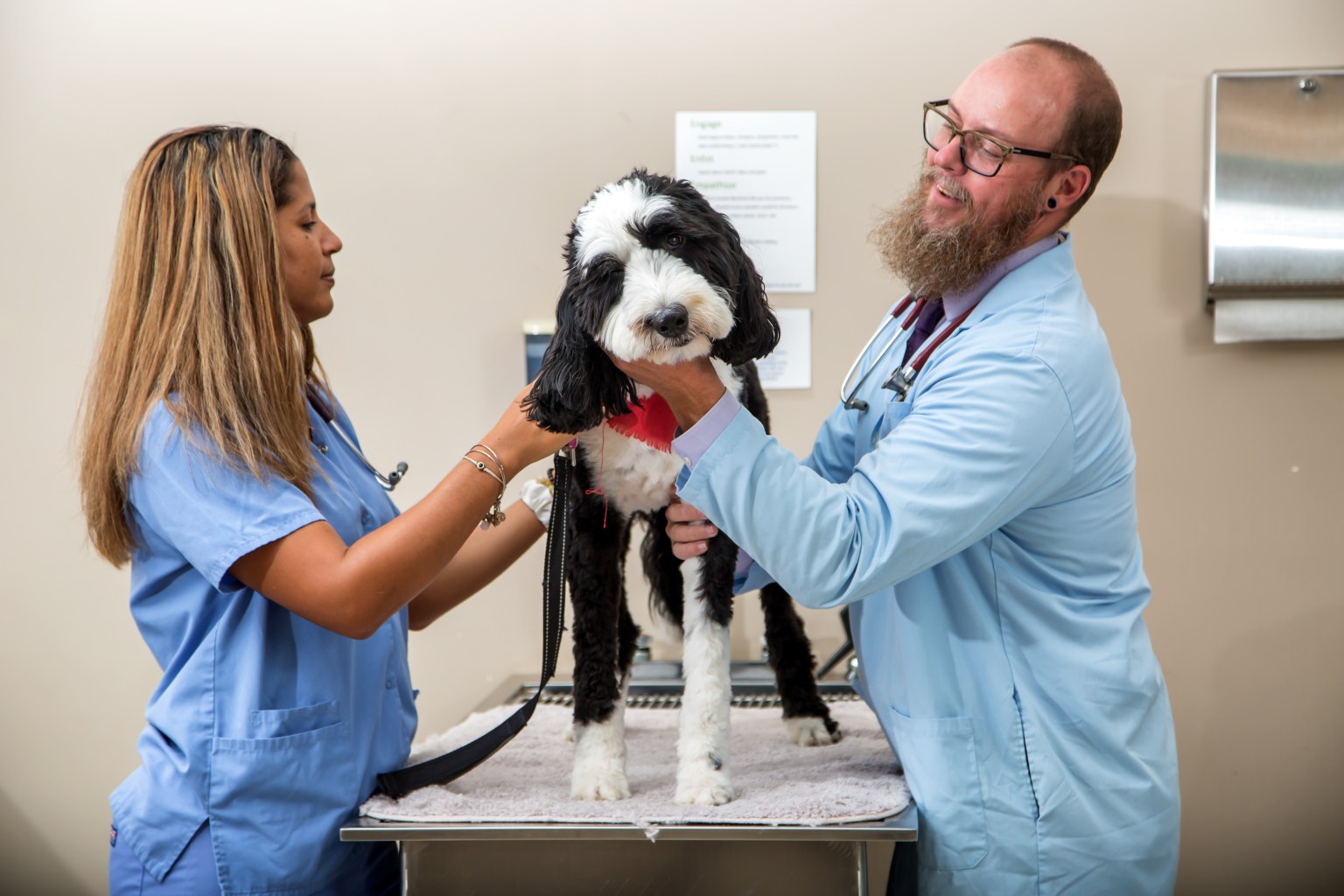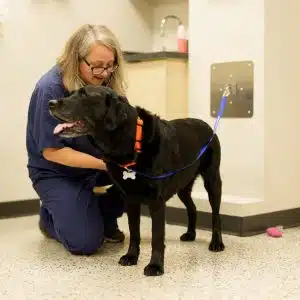Veterinary Oncology Services compared to general veterinary care for tumor patients
Wiki Article
Comprehensive Overview to the Providers Offered by a Vet Oncologist
Vet oncology includes a broad array of solutions intended at treating and identifying cancer in family pets. Pet Cancer Surgery. Oncologists utilize advanced analysis strategies and provide numerous treatment options tailored per animal's requirements. They additionally prioritize encouraging treatment and offer important sources for animal proprietors. Understanding these services is necessary for making notified choices. What specific elements of vet oncology can notably impact a family pet's treatment trip?Understanding Veterinary Oncology
Veterinary oncology is a customized area focused on dealing with and diagnosing cancer in animals. This technique encompasses a broad array of approaches, from medical treatments such as chemotherapy and immunotherapy to medical treatments targeted at eliminating growths. Veterinary oncologists are trained to acknowledge the distinct indications of cancer cells in various types, allowing them to customize therapy strategies to private people.Along with typical therapies, vet oncology emphasizes supportive treatment, which plays a crucial role in boosting the top quality of life for damaged animals. This includes pain management, nutritional support, and palliative care alternatives. Cooperation with pet dog proprietors is critical, as they are indispensable to decision-making concerning their pet dogs' treatment paths. As study advances, vet oncology proceeds to progress, offering new hope and improved end results for pet dogs identified with cancer. In general, this area is basic for resolving the intricacies of cancer in companion animals.
Advanced Diagnostic Techniques
Advanced analysis methods play an important role in vet oncology, supplying vital insights right into the existence and extent of cancer cells in animals. Imaging modalities such as ultrasound, CT scans, and MRI are generally employed to envision growths and evaluate their characteristics. In addition, biopsy procedures are necessary for obtaining cells samples, allowing for clear-cut diagnosis and customized treatment plans.Imaging Modalities Utilized
Imaging methods play a necessary role in the medical diagnosis and administration of cancer cells in animals. Vet oncologists utilize different advanced imaging methods to assess growth presence, dimension, and metastasis. Radiography, or X-rays, offers a preliminary sight of bone and chest conditions, while ultrasound supplies real-time imaging of soft tissues, enabling for thorough assessment of inner body organs. Calculated tomography (CT) improves visualization of intricate physiological structures and allows 3D repairs, aiding in precise growth localization. Magnetic vibration imaging (MRI) is important for soft tissue distinction, specifically in brain growths. In addition, nuclear medicine techniques such as positron discharge tomography (FAMILY PET) aid identify metabolic activity within growths. Jointly, these modalities boost diagnostic accuracy, assisting reliable treatment methods for oncological individuals.Biopsy Procedures Clarified
Complying with the preliminary analysis with imaging modalities, acquiring a clear-cut diagnosis commonly requires tissue sampling through biopsy treatments. Veterinary oncologists utilize various biopsy techniques based on the lump's area and attributes. Great needle desire (FNA) is a minimally intrusive approach that removes cells for cytological exam, suitable for superficial masses. Core needle biopsies provide larger cells examples and work for much deeper growths, permitting histopathological evaluation. Surgical biopsies entail excising a section or the whole growth, assisting in extensive examination. These treatments not only confirm the presence of cancer cells however likewise aid establish its kind and grade, guiding therapy choices. Each biopsy method is picked very carefully to balance diagnostic precision with client safety and convenience.Treatment Alternatives for Cancer in Pet dogs
When a family pet is diagnosed with cancer cells, a range of treatment choices appear to help boost and handle the condition high quality of life. Vet oncologists usually recommend a multidisciplinary technique tailored to the private pet dog's needs, which may include surgery, radiation therapy, immunotherapy, or different treatments.Surgical treatment is usually employed to eliminate growths and damaged tissues, potentially causing full remission sometimes. Radiation therapy aims to target and damage cancer cells, decreasing lump dimension and easing symptoms - Pet Cancer Surgery. Immunotherapy harnesses the animal's body immune system to combat cancer cells much more properly, while different therapies might include acupuncture or herbal supplements to support overall wellness
Each therapy alternative lugs its very own advantages and threats, and vet oncologists work closely with pet owners to design a complete strategy that lines up with the animal's particular diagnosis and the owner's wishes. The ultimate goal is to boost the family pet's convenience and high quality of life throughout their cancer journey.
Chemotherapy for Pets
Radiation treatment is a common therapy choice for family pets identified with cancer and is frequently used along with other treatments described by veterinary oncologists. This treatment includes the administration of particular medicines designed to target and destroy cancer cells, therefore minimizing lump size and avoiding the spread of the disease. Veterinary oncologists customize chemotherapy procedures based on the kind of cancer, the animal's overall wellness, and the preferred therapy result.Side effects can occur, as these medicines might also influence healthy cells. Usual reactions consist of nausea or vomiting, throwing up, and momentary modifications in cravings - Veterinary Cancer Specialist. Vet oncologists are outfitted to take care of these negative effects efficiently, making certain the pet dog's comfort throughout the treatment procedure. Normal tracking with blood tests and follow-up visits is vital to analyze the pet dog's reaction to chemotherapy and make necessary modifications. Ultimately, chemotherapy can give significant advantages, improving the lifestyle for pet dogs dealing with cancer cells diagnoses

Radiation Therapy in Vet Medication
Radiation therapy works as a reliable therapy choice for pets identified with localized tumors, providing a targeted strategy to cancer cells administration. This strategy utilizes high-energy radiation to damage the DNA of cancer cells, inhibiting their capacity to multiply. It is particularly advantageous for lumps that are not responsive to medical removal or for situations where surgical procedure might not be practical because of the lump's area.Veterinary oncologists customize radiation protocols based on growth type, size, and location, in addition to the pet's overall health and wellness. Therapy can be provided by means of external beam radiation or brachytherapy, each with distinctive advantages. Generally, multiple sessions are needed to take full advantage of performance while reducing negative effects.
Family pets may experience short-term responses such as skin irritation, the general goal is to diminish lumps and relieve symptoms, ultimately enhancing the pet's diagnosis and quality of life. As necessary, radiation treatment plays an essential duty in thorough cancer treatment.
Palliative Treatment and Quality of Life
Palliative treatment in vet oncology concentrates on boosting the lifestyle for family pets dealing with terminal health problems, guaranteeing convenience and self-respect in their final days. This customized approach prioritizes discomfort monitoring, symptom control, and emotional support. Veterinary oncologists assess each click here to find out more family pet's specific needs, customizing interventions to minimize discomfort and improve overall well-being.Techniques may consist of carrying out medications for pain alleviation, taking care of queasiness, and attending to various other stressful signs. Additionally, dietary support is usually given to maintain stamina and boost cravings. The emotional element of palliative treatment is similarly crucial; developing a tranquil environment aids reduce stress and anxiety for both pet dog and owner.
Eventually, the objective of palliative care is to permit pet dogs to enjoy their staying time with as much joy and self-respect as feasible. By concentrating on comfort and lifestyle, vet oncologists play an essential duty in ensuring that pets and their family members navigate this tough journey with concern and understanding.
Support for Family Pet Owners Throughout Treatment
Emotional Advice for Owners
Charting the psychological landscape throughout a pet's cancer treatment can be an overwhelming experience for owners. The unpredictability bordering diagnosis and diagnosis can lead to sensations of anxiety, helplessness, and despair. Vet oncologists recognize the value of psychological assistance and typically give guidance to aid owners navigate this tough trip. Interaction is essential; talking about therapy alternatives and possible end results can reduce some worries. Furthermore, supplying confidence that psychological responses stand fosters an encouraging environment. Many oncology clinics may also suggest support groups or counseling solutions tailored for pet dog proprietors, facilitating shared experiences. Encouraging owners to prioritize self-care during this time is important, as their emotional wellness straight influences their pet dog's convenience and total therapy experience.
Resources and Educational Materials
Guiding with the complexities of an animal's cancer cells therapy can be intimidating for proprietors, making accessibility to academic materials and trusted sources important. Vet oncologists frequently provide a selection of handouts, pamphlets, and online materials that describe treatment alternatives, prospective side effects, and care techniques. These resources aid equip and debunk the process family pet owners to make informed choices. Additionally, lots of oncology clinics use access to support discussion forums and groups where proprietors can connect with others dealing with comparable difficulties, cultivating a feeling of area. Educational workshops and webinars conducted by veterinary specialists further improve understanding, making certain that proprietors are well-appointed to navigate their pet's trip via cancer therapy with self-confidence and knowledge.Often Asked Inquiries
How Can I Prepare My Animal for a Vet Oncology Check Out?
Preparing a pet for a veterinary oncology check out entails gathering medical records, keeping in mind signs and symptoms, and ensuring the animal fits. A tranquil disposition and familiar products can help ease stress and anxiety during the visit.What Are the Indications My Pet Dog May Have Cancer Cells?
Indicators that a pet may have cancer cells include unexplained fat burning, relentless throwing up or looseness of the bowels, uncommon swellings or swellings, sleepiness, changes in appetite, difficulty breathing, and alterations in behavior. Prompt veterinary attention is important.How Can I Support My Pet Emotionally During Therapy?
Sustaining a pet dog psychologically throughout treatment involves offering comfort, maintaining regimens, supplying mild affection, and guaranteeing a tranquil setting. Involving in peaceful play and routine companionship helps alleviate stress and anxiety and cultivates a feeling of safety and security.Are There Alternative Treatments for Family Pets With Cancer?
Alternative treatments for animals with cancer consist of acupuncture, natural therapies, and dietary support. These approaches might match conventional therapies, promoting total wellness. Consulting with a vet is crucial for reliable and safe assimilation of alternate therapies.What Expenses Should I Expect for Veterinary Oncology Providers?
The anticipated costs for vet oncology services can differ significantly, usually influenced by diagnostics, treatments, and continuous care. Pet dog you could try these out owners need to get ready over at this website for costs varying from examinations to specialized therapies, showing the intricacy of cancer monitoring.Collaboration with animal proprietors is important, as they are indispensable to decision-making regarding their pet dogs' treatment paths. Each therapy option carries its own advantages and risks, and veterinary oncologists function closely with animal proprietors to make a complete plan that straightens with the pet's certain medical diagnosis and the owner's wishes. Family pets might experience temporary reactions such as skin irritability, the general purpose is to reduce tumors and minimize signs and symptoms, ultimately improving the animal's diagnosis and quality of life. Support for family pet proprietors throughout therapy is essential in guiding through the emotional challenges connected with a family pet's cancer cells medical diagnosis. Preparing a pet dog for a vet oncology visit involves gathering clinical documents, keeping in mind signs and symptoms, and guaranteeing the animal is comfortable.
Report this wiki page